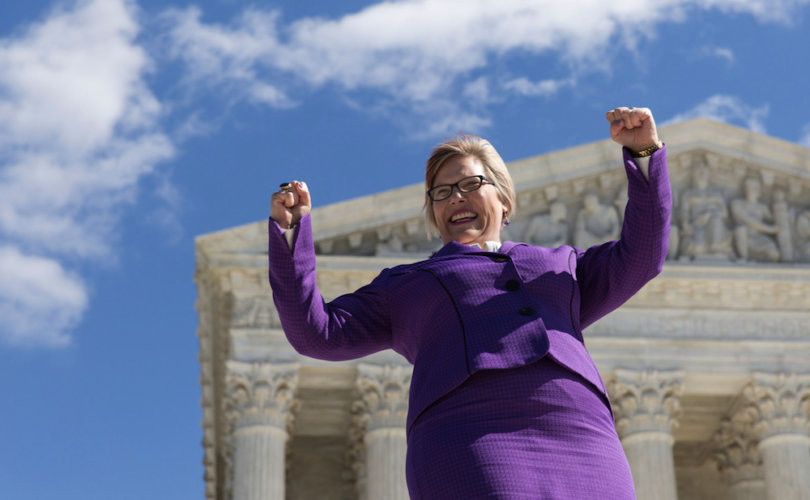AUSTIN, Texas, January 4, 2017 (LifeSiteNews) – Abortion providers and activists argued in federal court Tuesday that proposed state rules requiring proper burial of aborted children in Texas are “morally offensive” and unnecessary, have no medical benefit, and amount to government interference in women’s “reproductive health.”
U.S. District Judge Sam Sparks had blocked the rules set to go into effect last month after New York-based pro-abortion group Center for Reproductive Rights (CRR) sued on behalf of several abortion providers. The temporary restraining order delayed enactment of the new measures until January 6.
The rules require hospitals, other medical centers, and abortion facilities to bury or cremate the remains of children they abort or those that are miscarried at health centers. They do not apply to children aborted or miscarried at home.
“I find the interference by the government into women's reproductive health to be morally offensive,” Whole Woman's Health president Amy Hagstrom Miller told Sparks in court. “I don't understand how this puts women's health and safety forward.”
Hagstrom Miller, whose group runs three Texas abortion sites, said the rules would require fetal tissue to be treated differently than other human tissue, raise costs, and mandate the fetal tissue be buried regardless of the woman’s wishes.
Sparks ordered state lawyers to return to court Wednesday with more information on a Texas law allowing cremated ashes to be scattered on private property with the owner’s consent. He expressed concern that the rules for burying fetal remains could override the existing law.
He indicated as well in questioning the attorneys that the rules seemed to give “more respect” to fetal tissue than other tissue garnered from the reproductive process, Townhall.com reported.
Virginia Unitarian Universalist minister Debra Haffner, a witness for Whole Woman’s Health, stated in the Tuesday hearing that the rules as written suggest that life begins at conception, which is something many religions disagree on. She went on to say that this might push women to perform abortions at home to avoid the religious associations with burial and cremation.
Dr. Lendol Davis, who operates an abortion Austin abortion facility, said he was part of the lawsuit because the state rules impose somebody else’s values on his patients, do not offer any additional health benefit over current practice, and would also be upsetting to women.
Davis said the new rules have “no benefit for the patient or the state,” according to a report from WHIO, and would be “another step in terms of making patients feel bad about everything.”
Hagstrom Miller testified that the rules put her abortion facilities in danger of forced closure because the number of vendors available to comply with them was limited. She feared recurrence of previous experiences turning her businesses down after they were “targeted by anti-abortion” activists.
“By default, we will have a law that we are unable to comply with,” she said in a report from My Statesman.
State lawyers argued that the rules regulate facilities only, not individual women, and that they make certain fetal remains are treated with dignity.
“The rules don’t regulate women at all,” said John Langley, the state’s lead lawyer.
Current rules allow fetal tissue derived from abortion to be incinerated, ground, or disinfected before being disposed of either in a sanitary landfill or sewer system.
Texas Governor Greg Abbott said when the rules were introduced that he believes human and fetal remains should not be treated like medical waste.
“Texans’ basic rights and dignities are not a burden,” Abbott stated, “and I will continue doing everything in my power to protect them.”
Langley argued Tuesday that fears over cost increases were exaggerated, noting the estimates given by abortion providers’ own economist was an increase of 54 cents to the existing $1.56 per abortion.
The Texas Conference of Catholic Bishops (TCCB) said in December that it would extend its ministry of free burial in Catholic cemeteries for miscarried children to also include those who die in the state from abortion.
“To bury the dead is a work of mercy,” TCCB executive director Jennifer Carr Allmon said in a statement.
While Hagstrom Miller responded in court that “Not all of my patients are Catholic,” the burial service is available to all, regardless of their situation.
Sparks is expected to issue a decision by Friday.

